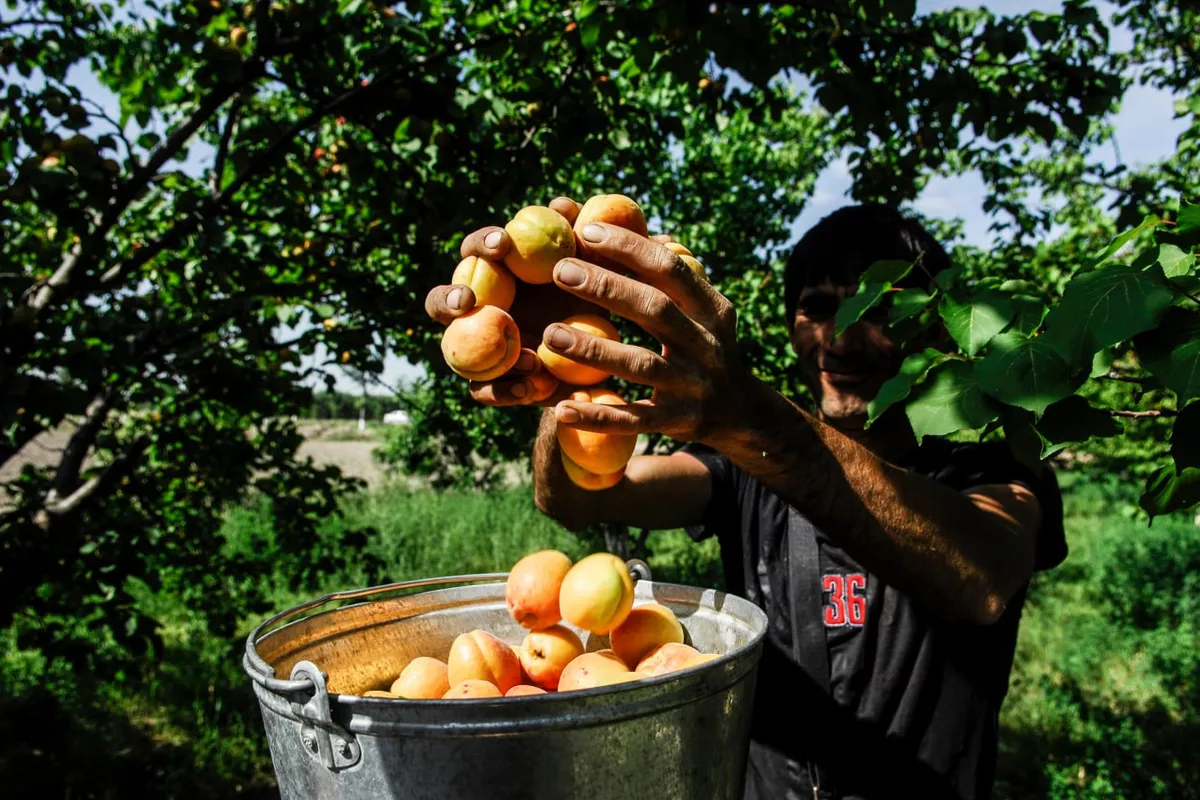
photo: Asia Plus
A high-level seminar titled “Promoting the Sustainable Development and Competitiveness of the Apricot Value Chain in Tajikistan” has been held in Dushanbe, marking the formal launch of a national initiative to transform the country’s apricot industry.
The event was jointly organized by the Food and Agriculture Organization (FAO) of the United Nations and the consulting firm Nexigol Mushovir, with support from Tajikistan’s Ministry of Agriculture and the Export Agency, The Caspian Post reports via Tajik media.
According to the FAO Office in Tajikistan, the seminar is part of the “One Country - One Priority Product” (OCOP) initiative, a global FAO program introduced in 2021 to support the development of unique, high-potential agricultural products by strengthening entire value chains - from production and processing to marketing and trade. In 2022, Tajikistan selected apricots as its priority product under OCOP, recognizing their economic importance, especially for smallholder farmers in the Sughd and Khatlon regions.
Transforming Apricot Value Chains for Sustainable Growth
The initiative seeks to enhance the competitiveness and sustainability of Tajikistan’s apricot sector by:
Improving quality and safety standards
Expanding value-added product development
Modernizing post-harvest handling and storage
Strengthening logistics and export strategies
Integrating small-scale farmers into commercial supply chains
While Tajikistan has seen growing success in dried apricot exports, challenges remain. Outdated farming practices, limited access to technology and finance, weak market infrastructure, and climate-related vulnerabilities continue to hinder the sector’s full potential.
Global Partnerships Supporting Sector Transformation
To tackle these issues, FAO - in collaboration with the United Nations Industrial Development Organization (UNIDO) - is providing technical assistance under the global “Accelerating the Transformation of Agri-food Systems” (ACTA) program. Through ACTA, experts are mapping the apricot value chain, identifying key bottlenecks, and designing investment strategies based on inclusive business models and market-driven partnerships aimed at attracting private capital and donor support.
“Apricots are not only an essential economic crop, but also a symbol of Tajikistan’s agricultural identity,” said Agasi Harutyunyan, Acting FAO Representative in Tajikistan. “Our objective is to elevate the value, quality, and sustainability of the apricot industry - ensuring it becomes a stronger contributor to rural livelihoods, climate resilience, and trade.”
A Coordinated National Roadmap in the Making
The seminar brought together government officials, agricultural experts, business leaders, and representatives from international organizations, laying the groundwork for a coordinated national roadmap. It is the first in a series of three consultative events under the OCOP-ACTA framework, intended to align stakeholders, foster innovation, and chart a strategic path forward for Tajikistan’s apricot sector.
As international development agencies including FAO, UNDP, and the World Bank continue to support the sector, the initiative is expected to create more resilient, inclusive, and export-ready apricot value chains - positioning Tajikistan as a competitive player in regional and global markets.
Share on social media